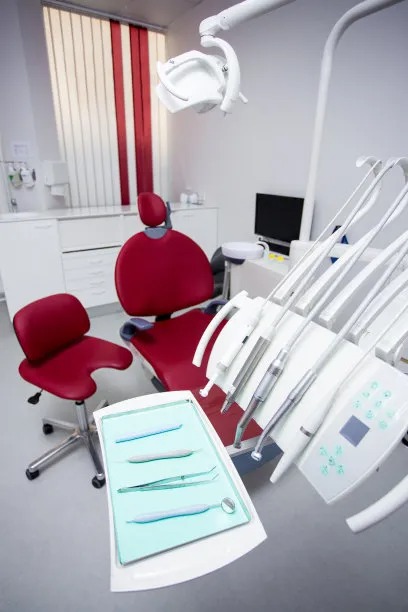Summary: Extracting a tooth may seem daunting, but it plays a crucial role in maintaining overall dental health and preventing future complications. This article delves into the various aspects of tooth extraction, including when its necessary, the health risks of keeping problematic teeth, the long-term benefits of extraction, and the emotional implications of dental procedures. By understanding these factors, patients can appreciate the importance of tooth extraction as a proactive step towards better oral health. With insights drawn from dental professionals, this piece advocates for informed decision-making in dental care, emphasizing that sometimes, the best path to wellness involves the removal of a tooth.
1. When Tooth Extraction is Necessary

Tooth extraction becomes inevitable in various scenarios, primarily when a tooth is severely decayed or infected. Dental caries can penetrate deep into the tooth structure, rendering it irreparable. In such cases, extraction prevents infection from worsening or spreading to adjacent teeth and gums. Ignoring dental infections can lead to systemic health issues, making timely extraction crucial.
Another scenario necessitating extraction is overcrowding. In some instances, particularly before orthodontic treatment, dentists may recommend removing certain teeth to create space for realignment. By ensuring enough space, patients can achieve better alignment and occlusion more effectively. This proactive approach often saves patients from future complications associated with misaligned teeth.
Lastly, wisdom teeth often warrant extraction. These third molars can become impacted, leading to pain, infection, and damage to neighboring teeth. Dentists typically suggest proactive removal in younger adults, thereby preventing complications that can arise in later years from retained wisdom teeth.
2. Health Risks of Retaining Problematic Teeth
Keeping a damaged tooth can significantly impact overall dental health. Bacterial growth in decayed teeth can proliferate, leading to the possibility of oral infections. These infections can enter the bloodstream, posing risks of serious health conditions affecting the heart and other organs. Therefore, removal of compromised teeth is essential in preventing such systemic ramifications.
In addition, untreated dental issues can result in chronic pain and discomfort. Patients may find themselves in a cycle of pain management rather than addressing the root cause of their dental problems. Extracting a problematic tooth alleviates the pain and helps in restoring normal functionality of the mouth.
Furthermore, holding onto a tooth that has lost a significant amount of structure can alter bite dynamics, leading to uneven wear on other teeth. This imbalance can contribute to temporomandibular joint (TMJ) disorders, which can cause further complications like headaches and jaw pain. Thus, timely extraction mitigates these risks and promotes healthier dental alignment.
3. Long-Term Benefits of Tooth Removal
One of the most significant long-term benefits of extracting a problematic tooth is improved oral hygiene. With fewer teeth to care for, patients can maintain better dental health standards. This simplification of dental care can encourage patients to invest more effort in their oral hygiene practices, enabling better overall health management.
Moreover, tooth extraction often facilitates future dental solutions such as implants and bridges. When a compromised tooth is removed, it creates opportunities for restoring dental function through modern prosthetic solutions, thereby enhancing the patient’s quality of life. These replacements can lead to improved chewing function and aesthetics, promoting confidence and comfort.
Additionally, avoiding the complications associated with keeping a troubling tooth saves patients time and money in the long run. Continuous treatment for dental caries, infections, or associated pain can accrue significant expenses. By opting for extraction early, patients can minimize these costs and invest in preventive care that promotes a healthy smile.
4. Emotional and Psychological Impact of Dental Procedures
The decision to extract a tooth can invoke a range of emotions, from fear and anxiety to relief. Understanding that extraction is a step towards better health can help patients handle these emotions constructively. Open communication with dental professionals about concerns can also ease anxiety and prepare them for the process.
Emotionally, tooth extractions can carry the stigma of loss, particularly if the tooth has personal significance. However, patients must view this as a necessary step toward restoring their oral health. Educational resources provided by dentists can aid in reframing the extraction experience positively, fostering acceptance.
Moreover, having a support system in place during the recovery period can greatly influence a patients emotional well-being. Friends and family can provide encouragement and care, transforming the process from a potentially isolating experience into a shared journey that fosters healing and resilience.
Summary: In conclusion, extracting a tooth is an essential aspect of maintaining overall dental health and preventing future complications. This proactive step can mitigate health risks associated with problematic teeth, simplify dental hygiene, and save costs in the long run. Understanding the emotional dimensions of this process allows patients to approach extraction with greater confidence. Emphasizing the importance of extraction helps individuals realize that sometimes, letting go of a problematic tooth is indeed the best path to overall well-being.
This article is compiled by Vickong Dental and the content is for reference only.
Vickong Dental
Vickong Dental is a large medical group established in Hong Kong in 2008 by professors from well-known medical universities in Guangdong and Hong Kong, as well as medical doctors from key national '985' universities (including Master's supervisors and senior professors). The chain of branches brings together expert dentists with PhDs and Master's degrees from Hong Kong and Mainland China, committed to providing high-quality dental treatment.
"Vickong Dental Practices the University Motto of 'Healing and Serving Society,' with a Stable Operation for Sixteen Years. It Has Been honored with Hong Kong Enterprise Leaders's Choice,' and is a Global Trusted Implant Center for the Nobel Implant System. Recommended by Hong Kong Metro Broadcast and Guangdong Television, it Serves Customers from Over Thirty Countries and Regions, Gaining the Trust and Favor of Citizens from the Guangdong-Hong Kong-Macau Greater Bay Area and Surrounding Cities.

Thousands of customers' unanimous praise
The most recognized and highly recommended dental service by customers in the Guangdong-Hong Kong-Macau Greater Bay Area
We Ensure You Receive Detailed Care and Attention Here
Hong Kong standards, Shenzhen prices, Your Trusted English-speaking dentists

Vickong Dental Medical-Grade Instrument Disinfection Process
Vickong Dental Medical-Grade Instrument Disinfection Process

Vickong Dental Chain: A Warm and Comfortable Environment for Treatment






Appointment Hours

Q&A
Why choose Vickong Dental?
Vickong Dental practices the university motto 「Medicine to Benefit Society」, with each branch bringing together highly qualified dentists with doctoral and master’s degrees from Hong Kong and the Mainland, and has maintained seventeen years of steady operation。Recipient of 「2024 Hong Kong Enterprise Leaders Brand」, 「2025 Hong Kong Enterprise Leaders Brand」, a Nobel Biocare Global Trusted Implant Center, and a brand recommended by Metro Radio Hong Kong and Guangdong TV。
To date, we have served customers from more than thirty countries and regions,earning exceptionally high word-of-mouth recognition and trusted recommendations from residents across the Guangdong-Hong Kong-Macao Greater Bay Area and surrounding cities
We have eight major branches in Zhuhai、Shenzhen,and a consultation and service assurance center in Hong Kong,so you can book a free consultation at any time for any questions,which is very reassuring.
If I do not accept the quotation after the CT scan, will I be charged??
No! As long as the actual treatment has not started, you will not be charged any fees.
Will there be any additional charges during the treatment process?
No, there won’t be any additional charges. Before treatment begins, we will clearly explain the treatment plan and its corresponding fees. Only after the patient agrees and signs the consent form will we proceed with the dental service.
Can I pay in Hong Kong dollars?
Yes. Vickong Dental accepts payment in Hong Kong dollars. The amount will be converted based on the exchange rate of the day, and the applicable rate will be clearly communicated to you in advance.
Can I reschedule my appointment at any time?
Yes. Please contact us via **WeChat** or **WhatsApp** as early as possible, providing your original appointment time and details, along with your preferred new date and time slot for rescheduling.













